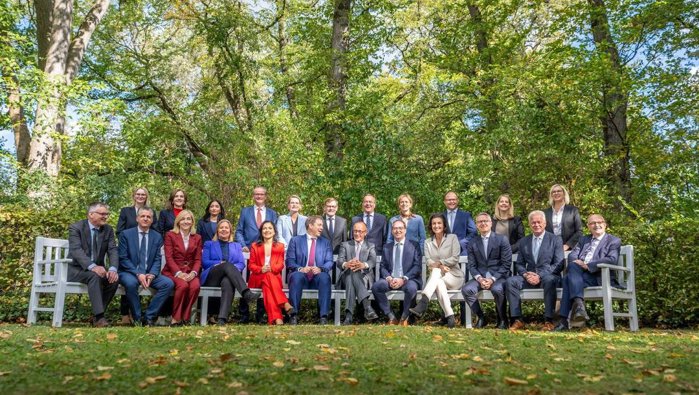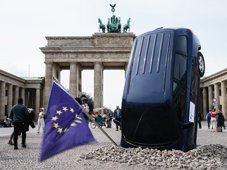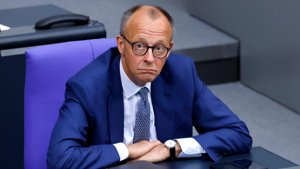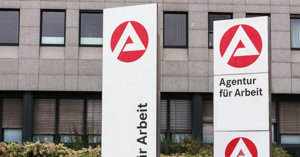
Cabinet Retreat Launches State Reform & Mood Reset
The new German government convenes its first cabinet retreat to set a reform agenda and counter negative public mood.
Germany’s new CDU/CSU–SPD coalition launched its first two-day cabinet retreat on Tuesday with a twin focus: reviving competitiveness and modernizing the state. A draft “modernization agenda” under discussion targets a 25% reduction in bureaucracy costs—roughly €16 billion—through about 80 measures, including a unified online portal for vehicle registrations and a digital feedback channel where citizens can flag burdensome rules, according to outlets that reviewed the plan.
Retreat overshadowed by two incidents
Transport Minister Patrick Schnieder suffered a circulatory collapse during the session at Berlin’s lakeside Villa Borsig and was taken to a hospital; he later stabilized, officials said. Culture Minister Wolfram Weimer left the meeting early due to a bereavement in his immediate family, his office confirmed.
‘The main adversary is the mood’
Beyond the economic briefings, ministers grappled with how to counter the country’s sour public sentiment. Vice Chancellor and Finance Minister Lars Klingbeil was quoted by participants as saying, “in principle, our main adversary is the mood,” an observation that fed calls for a broader “cultural shift” in how the state communicates and delivers services. A keynote by Princeton economist Markus Brunnermeier framed Germany’s growth challenge and the need to adapt a stability-oriented model to structural shocks.
What’s on the table: from ‘one-in-two-out’ to machine-readable laws
Briefing materials ahead of the retreat describe a modernization push spanning rule-making and service delivery—from “one-in-two-out” approaches to trimming regulations, to machine-readable legislation, streamlined hiring, and consolidated digital portals. The interior focus is complemented by near-term steps to speed permitting and lighten compliance for firms. Final decisions are slated for day two of the retreat.
Why Villa Borsig, and why now?
The Merz government chose the Foreign Office’s Villa Borsig compound for its first strategy huddle, underscoring a reset after a turbulent transition this spring. Chancellor Friedrich Merz—elected on May 6, 2025, at the head of a black–red coalition—has pressed ministers for immediate, visible improvements in state efficiency and business conditions.
Key players and portfolios
- Chancellor: Friedrich Merz (CDU)
- Vice Chancellor & Finance: Lars Klingbeil (SPD)
- Culture & Media: Wolfram Weimer
All three roles have been formalized since May, with government and institutional pages reflecting the changes.
What exactly is the 25% bureaucracy cut?
It’s a headline target to lower administrative costs by a quarter, translating to about €16 billion in net relief. The draft points to dozens of measures—digital portals, simpler procedures, and “better law-making” standards—to reach it.
Are there concrete examples?
Yes. Proposals include one national online portal for car registrations—now fragmented across states—and a digital “bureaucracy reporting” platform for citizen suggestions and problem reports.
Who briefed the cabinet on the economy?
Princeton’s Markus Brunnermeier delivered the opening impulse, arguing that Germany’s stability-centric model must adapt to global shifts; ministers then folded those themes into the agenda.
Did the incidents affect the schedule?
The retreat continued, but officials confirmed Minister Schnieder’s hospitalization and Minister Weimer’s early departure. Decisions on the agenda are expected at the close of day two.
Source: ZDFheute onvista DIE ZEIT FAZ.NET Handelsblatt






